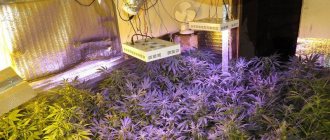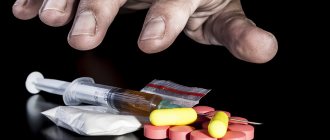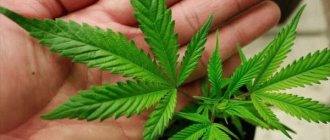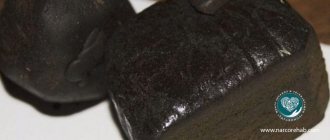In Russia, the cultivation of any drug-containing plants has been prohibited for a long time. First of all, we are talking about hemp and opium poppy. This ban was established by Federal Law No. 3 of 1998. The adoption of such a law was explained by the spread of artisanal production of plant drugs. However, Russian industry is faced with the downside of the war on drugs - dependence on foreign producers of opium poppy and cannabis for medicinal purposes. To create domestically produced raw materials, the State Duma decided to adopt a corresponding law back in 2019.
What preceded the adoption of the law
The so-called “marijuana law” was a consequence of the introduction of sanctions against the Russian industry. As a result, it turned out that nine out of ten global producers of narcotic plants for medical purposes stopped supplying raw materials to the Russian Federation.
The need to develop the local pharmaceutical market was noted back in 2012 in Presidential Decree No. 598. Then the goal was set to increase the number of domestic vital medications to 90%.
When adopting a bill allowing the cultivation of poppy and hemp, deputies also noted the need to create a state monopoly on this type of production. In addition, the law allowed the processing of foreign-made raw materials, but also only to licensed companies.
On February 10, 2021, the Cabinet of Ministers approved the list of plants that will be allowed to be grown for medicinal purposes. It included sleeping pills poppy and hemp, but only from seeds included in the state register.
Legalization and prohibitions
The legal status of hemp and its derivatives is a complex issue, since in many countries it is completely prohibited, and in some it is completely legalized. The first country to fully legalize marijuana was Uruguay, and this happened back in 2013. The main reason, according to the country’s government, is an attempt to squeeze out the “black” market and, as a result, a decrease in the volume of hard drug trafficking.
In 2021, several US states voted in a referendum to legalize marijuana, citing the same lofty goals of discriminating against the drug trade. But in most other countries of the world, such substances are prohibited, including in Russia.
The Russian Federation has a law “On Narcotic Drugs and Psychotropic Substances,” which includes marijuana in the 1st list of prohibited substances.
Who can grow hemp and poppy under the new rules?
Despite the relaxations in drug legislation, ordinary “enterprising” citizens should not be happy. The article for the use of marijuana and its cultivation has not disappeared from Russian legislation.
Only some Federal State Unitary Enterprises (FSUEs) will receive the right to procure raw materials for the production of vital medicines.
Consequences of use
Despite the declared “ease”, the consequences of smoking weed are by no means easy, namely:
- mental disorders (anxiety, panic attacks, aggression);
- memory impairment;
- disruption of the body's respiratory system;
- harm to the reproductive system, including impotence, and much more.
Also, Dutch scientists and doctors have proven that people who use “weed” have a 6 times higher risk of developing schizophrenia.
Details of the changes made
The explanations to the bill are built around the already mentioned problem of international sanctions. As a result of restrictions on the supply of a number of goods to Russia, the production of some potent medications has been jeopardized. To solve the problem, legislators decided to revise restrictions on the cultivation of raw materials by Russian companies.
Nominally, the new law repeals the provisions of Federal Law No. 3 of 1998, but the changes will not affect everyone. Only licensed companies with a large share of state capital will be able to grow previously banned varieties of poppy and hemp. Thus, the deputies decided to avoid the risks of disguising the drug business as medical production.
The law also notes the need to develop the cultivation of edible poppy, since Russian companies purchase this raw material abroad in the amount of up to 10 thousand tons per year.
In addition to the need to obtain a license for cultivating poppy and hemp, the following requirements are established for plants:
- when used in medicine, the content of psychotropic substances in plants is not limited;
- for use for other purposes (in the food industry, etc.) only poppy containing no more than 0.6% codeine, thebaine, morphine and oripavine, and hemp containing no more than 0.1% tetrahydrocannabinol in one bush are allowed.
For sowing, you can only use seeds of the first reproduction (for poppy) and from the first to third reproduction (for hemp).
Punishment for driving a vehicle under the influence of cannabinoids
The use of cannabinoids leads the driver to become intoxicated, therefore the punishment for this is prescribed under the corresponding article - 12.8 of the Code of Administrative Offenses. Persons driving while drunk are deprived of their license for a period of 18-24 months and receive a fine of 30,000 rubles. It will not be possible to avoid punishment by refusing to undergo examination, since Art. 12.26 the same sanctions are provided for this.
Can they be planted for buying or selling hemp seeds?
From the restrictions of the law described above, it follows that the sale of only certain types of hemp seeds is permitted. At the same time, they can be sold for industrial purposes, which means to legal entities and manufacturers of certain drugs.
In addition, there is Decree of the Government of the Russian Federation No. 460 of 2007, which specifies the varieties of hemp permitted for sale for industrial purposes. All of them are characterized by low cannabinol (THC) content. Sale of other varieties is prohibited.
In addition to liability for the use of marijuana, there are penalties for its purchase and sale.
Have a question for a lawyer? Ask now, call and get a free consultation from leading lawyers in your city. We will answer your questions quickly and try to help with your specific case.
Telephone in Moscow and the Moscow region: +7
Phone in St. Petersburg and Leningrad region: +7
Free hotline throughout Russia: 8 (800) 301-39-20
A person who purchases cannabis containing more than 0.05 grams of THC (substantial amount) may be sentenced to:
- Fine up to 40 thousand rubles;
- Compulsory work for 480 hours;
- Correctional labor for 2 years;
- Imprisonment or restriction thereof for up to 3 years.
For a large amount of THC contained in “weed” (0.25 grams), they can be imprisoned for 3-10 years, with an additional restriction of freedom for another year and a fine of half a million rubles.
With 50 grams of THC, the term of imprisonment is determined in the range from 10 to 15 years, and an additional fine and restrictions on freedom will amount to 500 thousand rubles and 1.5 years, respectively.
As for buyers of small amounts of “grass,” they only face a fine under Article 6.8 of the Code of Administrative Offenses of the Russian Federation in the amount of 4-5 thousand rubles, or arrest for 15 days.
The gradation described above allows you to understand how much grass you can have with you. However, it is worth considering that if its owner is found guilty of selling this plant, he may be prosecuted under Article 228.1 of the Criminal Code of the Russian Federation. In this case, he faces from 4 to 8 years in prison with an additional restriction of freedom for another year.
Aggravating circumstances include sales through the media and the Internet, as well as in transport, correctional and educational institutions, as well as on sports grounds and entertainment venues.
In this case, the term is determined in the range of 5-12 years, restriction of freedom can reach 1.5 years, and the fine can be half a million rubles.
You can get up to 15 years in prison for selling cannabis with a significant THC content, and for a large amount, as well as for committing a crime using your official position or as part of an organized group, you can get up to 20 years. Additionally, the court may prohibit working in a certain area for the same period and impose a fine of up to a million rubles.
Overdose symptoms
Signs of marijuana poisoning appear several minutes or several hours after consuming the drug.
An overdose of marijuana is manifested by:
- dilation of the pupils, lack of their reaction to light;
- redness of the face;
- dry mucous membranes;
- increased appetite;
- hoarseness of voice;
- rapid heartbeat - pulse rate exceeds 100 beats per minute;
- high blood pressure;
- pain in the heart area;
- trembling in the body, convulsions;
- fever or chills;
- acute psychosis (delirium): foggy consciousness, anxiety, fear, obsessive states, delirium, hallucinations, disorientation in time;
- neurological changes: difficulty speaking and thinking, sweeping movements of the limbs;
- disorder of consciousness: stunned, the victim reacts poorly to external stimuli;
- pathological sleep (stupor).
A person can remain in this state for several days.
What is the penalty for using marijuana?
There is an article for the use of marijuana only in the Code of Administrative Offenses of the Russian Federation. Therefore, the punishment is relatively mild.
For smoking at home, under Article 6.9 of the Code of Administrative Offenses of the Russian Federation, you face a fine of 4-5 thousand rubles or arrest for 15 days. Foreign citizens are being deported from Russia.
An identical punishment is provided for under Article 20.20 of the Code of Administrative Offenses of the Russian Federation, but this is liability for the use of marijuana in a public place.
Article 20.22 of the Code of Administrative Offenses of the Russian Federation provides for a fine of 1.5-2 thousand rubles for the parents of a teenager who smoked weed in a public place.
However, you should not think that the punishment will always be limited to a small fine. There is a very fine line between using and possessing marijuana. And if the amount of the drug found turns out to be significant (more than 6 grams), then a criminal case will be initiated, and the culprit can be imprisoned for up to 3 years. Large and especially large amounts of “weed” (100 grams and 100 kilograms, respectively) will result in imprisonment of up to 10-15 years.
Concepts and types
Marijuana among the people has dozens of slang names - weed, plan, straw, anasha, joint, weed, and in scientific circles this plant has an official name - cannabis. Marijuana is a mixture that is obtained from parts of hemp plants (leaves, stems, flowers, seeds are used). There are three varieties of hemp: seed, Indian and weed. There are also regional variations in the names and components of these drugs, for example, “ganja” - in India, this is the name given to hemp, as well as psychotropic products obtained from these plants.
What to do if someone gave you weed?
Attempts to plant drugs usually occur during a personal search or search. The difference between these concepts is that a search can be carried out only if a criminal case is initiated, and an inspection can be carried out upon suspicion of the person’s involvement in a crime. But in essence, the actions of police officers are almost identical operational activities.
It is important that the search takes place in the presence of witnesses. But since the police have the right, if there is suspicion, to examine a person on their own, in practice, after discovering drugs and other prohibited substances on him, they attract witnesses to re-examine and draw up a report.
In this case, it is necessary to indicate in the protocol and inform the witnesses that an inspection had already been carried out before their involvement.
If drugs were planted during his trial, you need to deny that they belong to the person being searched, and also take advantage of the right given by Article 51 of the Constitution of the Russian Federation and not give evidence about yourself.
Immediately after drawing up the report, the detainee has the right to seek help from a lawyer who will help prove the fact of falsification of evidence and false accusation of a person for drug possession.
Possession of marijuana
The method you choose to store your marijuana will largely determine how long your buds will remain strong and flavorful. What is the best way to store pine cones? Do I need to vacuum the buds? Is it possible to freeze them without losing their properties?
Properly stored cannabis looks bright and vibrant - most often the buds are green with orange hairs, although other colors such as purple or pink can sometimes be found.
Improperly stored buds turn brown and brittle (brown is not always a bad thing, as well-cured cannabis will also lose color, but brown and brittle buds are a clear sign of improper storage. If a good looking bud has patches of brown, it may be a sign of mold!)
Note: Some people like the taste and effect of the buds after curing with water or a very long regular curing, after which the buds develop unique aromas but the color turns brownish. In this case, the buds should still be dense and not fall apart when pressed. Although there are exceptions, brown buds generally lose potency and flavor over time.
If you are growing a large amount of cannabis at one time, then you need to store it so that it will survive until the next harvest. Some growers only harvest once a year (particularly those who grow outdoors), so they need the buds to last until next fall!
Luckily, storing marijuana is very easy and cheap. You don't need any special equipment other than an airtight glass jar.
Airtight glass jars are the best place to store your cannabis!
Below are the main ways to store cannabis, each with its own pros and cons.
What are cannabinoids?
Cannabinoids are a group of narcotic, psychotropic substances contained in hemp, marijuana or excreted synthetically. They have a strong impact on the functioning of the brain. Cannabinoids are sometimes found in medications. They are used as an analgesic or antiemetic, most often for patients with cancer.
What medications contain cannabinoids?
Usually, on the packaging of medicines containing even the smallest proportions of narcotic substances, a warning is printed about the dangers of driving after taking them. But you can be 100% sure that there are no drugs only after reading the ingredients.
Here is a list of some drugs containing cannabinoids:
- hemp oil (prohibited in many countries);
- "Marinol" ("Dronabinol");
- "Sativex" ("Nabiximols");
- "Nabilone".
What is marijuana and its effect on the body
Marijuana is a drug obtained from the stems and leaves of cannabis with the addition of a small amount of flowers. The active substance is THC, which is found in marijuana at 0.5-4%.
Addicts sometimes add marijuana to food for an intoxicating effect, but the main way to use it is through smoking. For this purpose, a rolled-up cigarette (joint) or a cigarette is used, in which tobacco is replaced with weed. Inhaled smoke containing THC enters the bloodstream through the lungs and spreads throughout the body, resulting in drug intoxication.
The active substance of marijuana, after entering the bloodstream, begins to act almost immediately, the maximum effect is achieved after half an hour, and the duration of action is 2-4 hours, depending on the concentration of THC and the sensitivity of the body.
Characteristic features of cannabinoid drug effects:
- euphoria;
- general muscle relaxation, feeling of lightness;
- violation of spatiotemporal perception;
- causeless uncontrollable laughter;
- hyperesthesia of sound, color and taste stimuli.
In a state of drug intoxication after consuming marijuana, the perception of things changes: colors become brighter, individual sounds merge into music, food becomes even tastier, etc. The passage of time slows down or, on the contrary, accelerates, social activity increases - a person becomes sociable and talkative.
In combination with alcohol, a feeling of impending danger may appear, anxiety and panic may arise. General lethargy appears, thought processes and memory are disrupted.
Effect of marijuana on human organs:
- brain - has a negative impact on short-term memory, the ability to understand what is happening, abstract thinking and learning;
- lungs - causes negative effects characteristic of smoking, on an increased scale - pharyngitis, bronchitis, sinusitis, cancer, edema, the development of various diseases of the upper respiratory tract.
- heart - increased blood pressure, increased heart rate;
- reproductive system - hormonal imbalance, decreased testosterone and increased number of abnormal cells in sperm in men, ovulation disorders and toxic effects on the fetus in women.
Marijuana can accumulate in the female genital organs and disrupt the development of the fetus; mothers who smoke marijuana give birth to children with reduced weight - “fetal marijuana syndrome,” which is observed 5 times more often than “fetal alcohol syndrome.” When feeding infants, the drug passes through the mother's milk into the child's body. Weed can cause unpredictable effects in people with heart defects and those suffering from cardiovascular diseases.
Marijuana impairs coordination of movements; after smoking “weed,” the reaction to sound and light signals slows down, the degree of perception and the ability to perform sequential operations decreases. The drug addict develops a need to actively move and talk, and when at rest they take unnatural positions.
Marijuana acts more mildly than hard drugs, but ultimately causes the same consequences - destruction of health and personality degradation. The consequences of drug use can be mental disorders - apathy, depression, suicidal tendencies. In the absence of weed, a state of extreme discomfort appears, which forces you to constantly increase the dose.
Marijuana leads to rapid addiction, and then to the need to increase the dose, followed by a transition to stronger drugs. Medical studies show that in almost all cases, users of heroin, crack and other “hard” drugs started with marijuana. Cannabis and all drugs based on it are included in List No. 1 of the UN Convention and relevant legislative acts of the Russian Federation and are prohibited from free circulation.
Long-term use of marijuana leads to serious disruptions in the functioning of the brain and vital systems in humans. The only positive effect of marijuana is that by blocking pain receptors, it can provide a powerful analgesic effect.
Where you don't go to jail for marijuana
Spain
In February 1992, Spain passed a law that made marijuana use an administrative offense. For possession of “weed” or smoking on the street there is a fine of 300 euros. Criminal prosecution is threatened only if a person is found with more than 40 grams of cannabis. Growing marijuana for sale and distributing it is punishable by one to three years in prison.
Smoking cannabis in public places is prohibited, so it is consumed at home or in specialized marijuana clubs, of which there are about 500 in Spain.
Portugal
On July 1, 2001, Portugal abolished criminal penalties for the possession of any drugs, from weed to heroin, in cases where they are used for personal purposes. Drugs are still illegal, but possession (subject to certain restrictions) will not result in prosecution. Selling is considered a criminal offense.
In Portugal, it is legal to possess one gram of heroin, MDMA or amphetamine, two grams of cocaine or up to 25 grams of cannabis. The police do not detain people with such quantities of drugs, but issue them a warning or refer them to so-called “explanatory commissions”, which include legal and social experts, as well as psychologists. If a person appears before such a commission several times, he may be sent for treatment.
After the decriminalization of drug possession in Portugal, the spread of HIV infection slowed sharply, and there were fewer deaths from overdoses and people with heroin addiction. If in the late 1990s 100 thousand people used heroin, now there are 50 thousand, many of whom are on substitution therapy.
Netherlands
The Netherlands is one of the few countries where, since 1972, drugs have been officially divided into hard and soft drugs. The latter, in particular, include marijuana and hallucinogenic mushrooms. Despite the widespread belief that marijuana is legal in the Netherlands, in reality the possession, production and sale of any drug is illegal. However, for possession of up to 30 grams of cannabis, only administrative punishment, that is, a fine, is faced. There is no talk of full legalization, although this topic has been discussed in Holland since the late 1970s.
In Amsterdam, Rotterdam, The Hague, Utrecht and about 100 other cities in Holland there are coffee shops that have official permits to sell marijuana and other soft drugs. Coffee shops are designed to protect those who smoke weed or eat mushrooms from people who use heroin and other hard drugs. People over 18 years of age can buy up to five grams of cannabis daily in coffee shops. Buying drugs on the street is illegal.
In 2012, the court decided to exclude tourists from coffee shops, but this requirement does not apply to Amsterdam and some other large cities.
Belgium
In 1998, Belgium passed a law that classified marijuana as a soft drug, and in 2003, parliament passed a law that allowed the use of such drugs. Although marijuana remained on the list of prohibited drugs, local residents were allowed to possess up to three grams of cannabis and grow one plant. You cannot smoke marijuana in public places, but you can while driving a car.
Great Britain
In 2002, the UK authorities moved marijuana from class B to class C, which also includes steroids. This means that possession of a small amount of hemp and its derivatives is not considered a crime, and marijuana trafficking is under state control. At the same time, the police reserved the right to detain smokers in “severe” cases, for example, when smoking marijuana in the presence of children.
Germany
According to the country's laws, German police do not prosecute citizens for possessing “small quantities” of drugs purchased for personal use. However, police can arrest you for smoking marijuana in public places, such as at school, or in the presence of children. However, the provisions of the law are so vague that the police consider different amounts of drugs to be “negligible” in different federal states. In most cases, possession of less than 5 grams is not prosecuted.
In May 2021, the German government supported a bill to legalize medical marijuana. German Health Minister Hermann Grohe said that seriously ill patients who have not been helped by other treatment methods will be able to get cannabis. Hemp will be grown at the Federal Institute of Medicines and Medical Products and sold in pharmacies with a doctor’s prescription as part of health insurance. The bill was submitted to parliament, but the Bundestag has not yet adopted it; the law is expected to come into force by spring 2021.
Until then, residents of Germany can only obtain medical marijuana if they have a special permit. As of April 2021, 647 people received cannabis.
Czech
On January 1, 2010, a government regulation came into force in the Czech Republic that regulates the possession of “small quantities of drugs.” From now on, in the country you can carry up to 15 grams of marijuana, five grams of hashish, one and a half grams of heroin, one gram of cocaine, two grams of pervitin (the street name for methamphetamine). The government also makes it a misdemeanor rather than a felony to grow five cannabis plants. Since April 1, 2013, it is legal to sell marijuana in pharmacies in the Czech Republic with a doctor’s prescription.
Malta
In 2015, Maltese authorities removed the possession of small amounts of marijuana and a number of other drugs from the list of criminal offences. Police will not prosecute anyone caught with 3.5 grams of cannabis, two grams of other drugs or two ecstasy tablets. Violators will face a fine of 65 to 125 euros, or 50 to 100 euros in the case of cannabis.
Luxembourg
In Luxembourg, the possession and use of marijuana, unlike other illegal drugs, is not a criminal offense. This offense is punishable by a fine of 250 to 2,500 euros. In recent years, the country has been discussing the complete decriminalization of marijuana use.
Ecuador
The Ecuadorian Constitution of 2008 states that drug use is not a crime, but a medical problem. In the country, it is legal to possess for personal consumption 10 grams of cannabis or hashish, up to four grams of opium, 100 milligrams of heroin, five grams of cocaine, 80 milligrams of methamphetamines or MDMA, and 0.020 milligrams of LSD.
Mexico
In 2009, Mexican President Felipe Calderon signed a law that allowed the possession and transportation of small quantities of drugs: two grams of opium, 50 milligrams of heroin, five grams of marijuana, 500 milligrams of cocaine, 40 milligrams of methamphetamines and 0.015 milligrams of LSD.
Colombia
In August 2015, Colombian President Juan Manuel Santos allowed the possession of up to 20 grams of cannabis and the cultivation of 20 plants for personal use. In December of the same year, he allowed the cultivation and use of marijuana for medical and scientific purposes. At the same time, there is no talk of complete legalization.
Paraguay
In 1988, Paraguayan authorities allowed the possession of up to two grams of cocaine or heroin and up to 10 grams of cannabis for personal use.
Argentina
In 2009, the Argentine Supreme Court decriminalized possession of cannabis, thereby allowing “small amounts” of marijuana to be smoked in private places.
Brazil
In Brazil, marijuana is prohibited, but its possession (as well as the possession of any drugs) does not result in imprisonment. In 2006, the country passed a law that introduced alternative punishments for drug addicts. That same year, authorities adopted new amendments that separated drug dealers from those who use drugs.
Venezuela
In 1993, Venezuela commuted prison sentences to “social sanctions” for those caught with two grams of cocaine or 20 grams of cannabis. People arrested for possession of drugs for personal use are sent to treatment.
Cambodia
Marijuana is illegal in Cambodia, but Khmer authorities make an exception for those who use the "weed" for medicinal or culinary purposes. This is why local restaurants openly sell Happy Pizza with cannabis, and markets sell “happy” confectionery products.
Chile
In February 2005, Chilean authorities passed a law that decriminalized the use of any drug, including marijuana, for personal use in a private setting. In each specific case, the question of whether we are talking about personal possession or sale of drugs was left to the discretion of the judges. Those caught with “weed” may be fined, sent to compulsory labor or rehabilitation.
Jamaica
For a long time, marijuana was illegal in Jamaica, although it is closely associated with the island's culture. In February 2015, a law came into force in the country that allows you to possess up to two ounces of cannabis (56 grams) and grow no more than five bushes.
Australia
In February 2021, the Australian Parliament passed amendments to the drug law, which allowed the use of marijuana for medical purposes at the federal level. Although recreational use of cannabis remains illegal, the country does not have a punitive anti-drug policy (although smuggling 100 kilograms of cannabis carries a life sentence).
In some regions of Australia, possession and cultivation of marijuana is punishable by a fine rather than prison. In the Australian Capital Territory, possession of up to 25 grams of cannabis carries a fine of A$100 ($75). In Western Australia, people caught with 10 grams of cannabis are referred to psychologists. At the same time, in New South Wales, Queensland, Victoria and Tasmania, the possession and use of cannabis is considered a criminal offense, but usually the perpetrators are sent not to prison, but to education or treatment.
North Korea
The legal status of hemp in the DPRK is not fully known. According to the Huffington Post and Vice, North Korea is free to smoke marijuana, which grows like a weed in the country. The British newspaper The Guardian calls the legalization of cannabis in North Korea a myth. Drug crimes in the country are punishable by death or imprisonment in a labor camp, but it is not entirely clear whether people will be sent to prison for possessing small amounts of “weed.”








